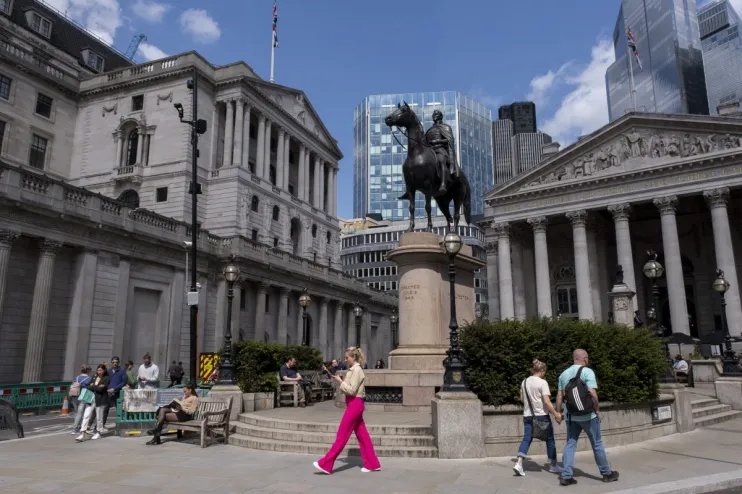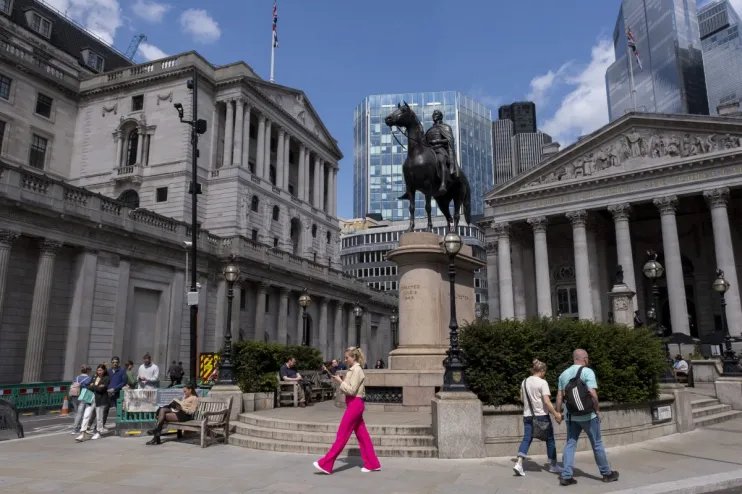| Updated:

Bond market participants are bracing for a fresh round of turbulence in the aftermath of Wednesday’s Budget, with investors rejigging their exposure to gilts having warned the Chancellor’s fiscal plans are “very much under the microscope”.
Rachel Reeves is expected to use her second major fiscal shake-up mount a historic tax and spend consolidation in a bid to stay within her self-imposed debt rules, with expensive properties, pension contributions and gambling firms all rumoured to in the Treasury firing line.
Richard Carter, the head of fixed income research at Quilter Cheviot, told City AM the Chancellor had a “tough job persuading markets she has a credible fiscal plan” but that bonds could rally “given that inflation has probably peaked and that the Bank of England has room to cut rates”.
Many fixed income investors still bear the scars from the tumult wrought by Liz Truss’s fateful mini-Budget, since when fiscal updates from the government have been subject to unprecedented market scrutiny. Rachel Reeves’s maiden Budget sparked a similar – but smaller – fallout after she announced £70bn of fresh spending pledges last year alongside tax rises worth £50bn.
Nerves follow UK bond market rally
But recently, longer-dated government bonds, which are more reflective of a country’s fiscal credibility and inflation expectations, have enjoyed their best run for several years. Aided by hopes of a softer inflation outlook and Rachel Reeves’ decision to double down on her self-imposed fiscal rules, 10-year gilt yields fell by over half a percentage point since hitting a January high.
The rally was further aided by the Chancellor’s decision to prepare voters for a market-friendly – but manifesto-busting – income tax rise, but fell back again after those plans were abandoned earlier this month.
The U-turn compounded fears that the Treasury will opt for a so-called ‘smorgasbord’ of multiple small tax rises, many of which will not generate meaningful revenue for the Exchequer for several years and are harder for official forecasters to model.
Those worries have been exacerbated by rumours the Chancellor is also planning to unveil a flurry of spending pledges for the NHS and welfare, including a £3bn move to remove the two-child benefit cap.
Welfare spending ‘unlikely to be well received’
“The prospect of increased welfare spending along with often unreliable, future tax increases is unlikely to be well-received by the bond market,” David Zhan, head of fixed income at Franklin Templeton, told City AM.
“With spending happening now and revenue generation pushed further into the future, the initial assessment is that this ‘spend now, pay later’ Budget will be viewed as unsustainable by the market.”
The piecemeal approach to consolidation has led some investors with chunky exposure to UK government bonds to find ways of managing the downside risk posed by a sell-off. W1M, which has long been overweight gilts, has sought to offset the ill effects of a negative investor response via the currency markets by taking out put options on sterling. The move allows the fund to buy the pound at a guaranteed price against the dollar, should it be hit by a downturn.
“We remain constructive on gilts… expecting measures aimed at reducing debt costs through targeted cost-of-living support and rebuilding the fiscal buffer,” said James Carter, a fixed income portfolio manager at the investment management firm. “These steps should be broadly bond-market friendly.”
W1M’s trade follows earlier reports that asset management juggernauts Amundi and Vanguard had trimmed their exposure to gilts ahead of Wednesday’s speech.
John Stopford, head of managed income at Ninety One, said: “Once the Chancellor backed away from manifesto-breaking tax changes, the gilt market… lost much of the confidence it had regained in the ability of the government to tighten fiscal policy credibly. However, it retained its growing optimism around the path of inflation and the likelihood of a December interest rate cut.”
“Going into the Budget, the bond market doesn’t appear to expect much in the way of positive surprises from the Chancellor, but also assumes her policy choices won’t stop the Bank of England from easing further,” he added.

